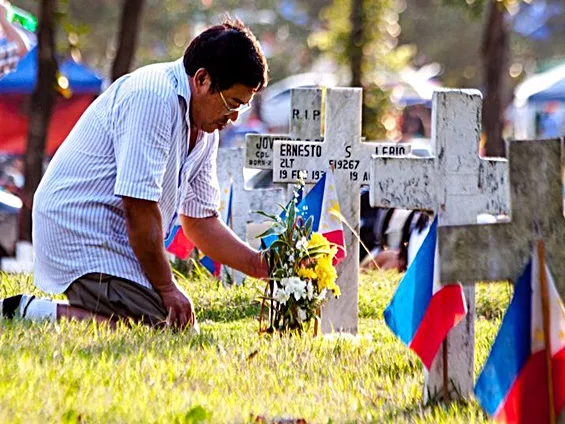“Pagpag” is a deeply ingrained and widely practiced superstition in Filipino culture. Stemming from a complex blend of spiritual beliefs and cultural norms, it reflects the Filipino people’s respect for the deceased and their deep-rooted fear of negative energy or malevolent spirits.
When someone attends a wake or funeral, they are considered to be in close contact with the grieving family, as well as with the spirit of the departed. This close proximity is believed to put them at risk of accumulating negative energy or attracting wandering spirits that may be present at the mourning site. The fear is that these energies or spirits might follow the person home, leading to bad luck, illness, or other negative outcomes.
To counteract this potential risk, the practice of “pagpag” comes into play. The word “pagpag” itself means to shake off, and it involves a set of actions aimed at cleansing oneself from any lingering negative influences. After leaving the wake or funeral, individuals will often make sure to shake their clothes, hands, or body to symbolically rid themselves of these energies. Some might even avoid heading straight home, opting to visit another place or stop by a public area before returning home. This extra step is taken to further discourage any negative energies from following them.
The belief is that by physically shaking off these energies, individuals can disrupt any attachments that might have formed and prevent them from entering their personal spaces. In doing so, they hope to avoid the potential repercussions of carrying these energies with them.
The term “pamahiin,” which translates to “superstition,” highlights the belief system behind “pagpag.” This practice is not just about a simple physical action; it’s about safeguarding oneself from unseen and potentially harmful forces. It’s a demonstration of respect for the departed, a cultural acknowledgment of the mysteries of the afterlife, and a way to navigate the complex realm between the living and the spiritual.
In summary, “pagpag” is a practice rooted in the Filipino cultural fabric, intertwining spiritual beliefs, respect for the deceased, and a desire to protect oneself from negative influences. It serves as a poignant example of how traditions can provide comfort, guidance, and a sense of control in times of loss and vulnerability.











